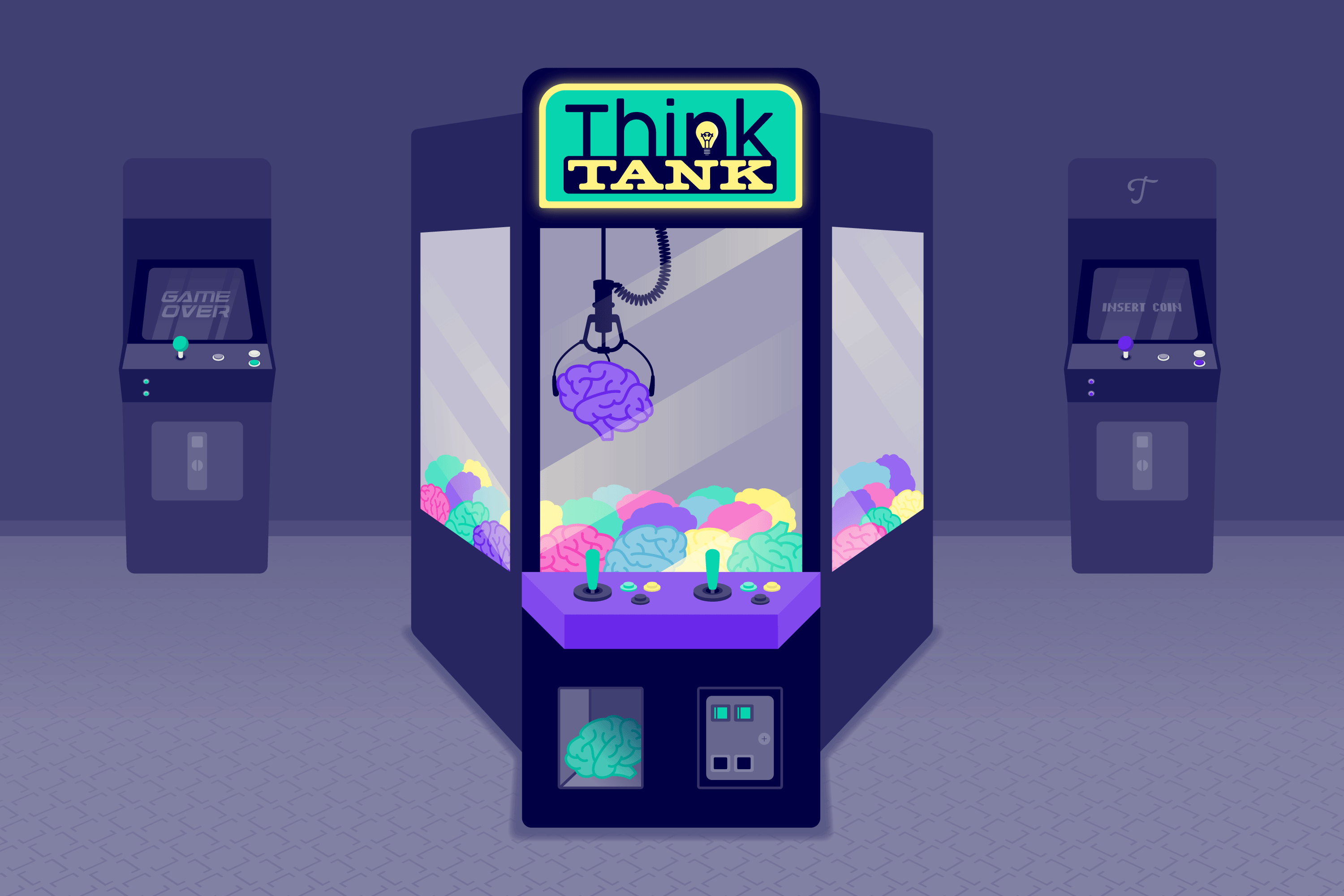How you can save for retirement while still growing your business
August 24, 2022
On this day in 2006, the International Astronomical Union (IAU) demoted Pluto to “dwarf planet” status. We’re still waiting for justice.
In this week’s edition, we’ve got some philosophical battle royales:
- The entrepreneur dilemma: saving for retirement or reinvesting in your biz?
- What determines entrepreneurial success: IQ or EQ?
- Making the case for hiring more neurodiverse talent.
PRE-TIREMENT
Not sure how to save for retirement? Read this.
.gif)
Kim said it best.
We admire your commitment, but some of us want to do that world tour in our golden years. But saving for retirement as a business owner is different than when you work for someone else. In fact, 34% of entrepreneurs have no retirement savings plan.
Who can save money? I’m putting it all back into my SMB.
That’s actually pretty common — after investing so much time and energy building your business, extra cash can seem like an opportunity to further establish your SMB. Some owners even bank on growing their businesses enough to sell down the line — their version of a retirement investment.
But, it’s a gamble, especially when you consider what could go wrong. Your business could fail, your health could suffer, or your business could sell for less than you expect. For these reasons you should consider squirreling a little away for your golden years.
Okay, what are my options?
There are a number of retirement plan options for SMB owners, like a traditional Roth IRA or a solo 401(k). Determine how much you can afford to save — even 1% will build up over time — and make your retirement savings a priority.
👉 Which plan works best for you?
PLAYBOOK 2022
Have questions? These SMB superstars have answers.

Those burning business questions keeping you up at night? Here’s your shot at getting them answered! Because we’re inviting the who’s who of entrepreneurs to share their proven playbooks with you at Playbook 2022.
Ask Saysh founders Allyson & Wes Felix and marketing whiz Seth Godin anything you want to know about growing and scaling your business during this year’s live Q&As. Plus, hear from the people behind today’s fastest growing companies like Basecamp, Hubspot, The Giving Keys, PandaDoc, Little Spoon, and The Cupcake Collection.
This event is FREE (yep, still free), totally digital, and completely candid. And it’s all going down September 21-22.
👉 Register now.
👀 Keep an eye on your inbox later this week for another big speaker reveal!
BOOK SMART VS. STREET SMART
Which leads to more entrepreneurial success: IQ or emotional intelligence?
Hint: It’s not IQ.
If you think a high IQ score will auto-lead you to small business success, think again. Studies show that those with high EQ (emotional intelligence), who lead with self-awareness and empathy, are better at overcoming economic turns, building better workplace relationships, and team motivation.
Sounds important. Do I need to improve my EQ?
Your ability to recognize the emotions of yourself and others, display empathy, and communicate thoughtfully are good indicators of your EQ. But even if you think you’re a pro, chances are good you can still improve your EQ at work.
Here are a couple of ways to get started:
- Inspire your team. When you create a vision and set goals for your company that resonate with your employees, they’ll feel more hopeful and compassionate about the part they play (and motivated to do their best).
- Focus on team development. By providing feedback (the right way) and continued coaching, you show your team they’re appreciated and that you care about helping them grow.
Sweet! But what about my employees — can I help them improve their EQs?
Absolutely! Here’s how:
- Create organizational awareness. When you make a list of everyone in your organization and define their roles, it helps your whole team understand how they (and their peers) fit in.
👉 See more quick tips on improving business EQ.
THINK TANK
SMBs should start hiring for more neurodiverse talent. Here’s why.

When DE&I is more than just… DE&I.
Most businesses are familiar with the benefits of diversity, equity, and inclusion efforts. But they’re less aware of the advantages that come with hiring neurodiverse employees.
Neurodiversity is broad, but in general, it refers to individuals:
- On the autism spectrum.
- With attention, hyperactivity, or coordination disorders.
- With learning disabilities.
For SMBs, there’s a great advantage to having neurodiverse employees. They bring new ways of thinking to your team, and some neurodiverse candidates have stronger skills — like pattern recognition, memory, or attention to detail — than their neurotypical colleagues.
Because companies often overlook neurodiverse employees, the unemployment rate for the community is much higher than the general population. In the U.S. alone, an estimated 85% of people on the autism spectrum are unemployed (compared to just 3.6% overall).
Luckily, more companies are incorporating neurodiverse programs into their workplace, including Microsoft, Hilton, EY, JPMorgan, and Chase.
And your SMB can do the same. Here’s how:
- Find resources and partners to understand needs. Read dependable online resources, like the Neurodiversity Hub, or partner with a local government or non-profit agency, like Autism Speaks. These organizations can help fill your knowledge gap and ensure you’re ready to access and bring on neurodiverse candidates.
- Rethink your qualifications and job descriptions. There are many roles where neurodivergent people inherently excel. These roles typically have structure, require attention to detail, and don’t regularly include intense interpersonal interactions. For SMB owners, you can start by identifying where those roles exist in your business. And if you’re not sure where to look, turn to your local partners for ideas.
👉 Read more tips on hiring neurodiverse talent.
TL;DR
This week’s highlight reel
- “I’m like yo, that’s $50 for a T-shirt.” That’s Macklemore in his hit “Thrift Shop” — AKA the song that literally made him famous. The Grammy winner apparently ditched your grandpa’s hand-me-downs to launch his own golf apparel brand, Bogey Boys. Sure hope we can get something with the $20 in our pocket. (Spoiler alert: We can’t.)
- Snap out of it. A million people have already subscribed to Snapchat Plus — getting desktop use, early feature access, and more for $3.99 a month. The app certainly isn’t dead… but is it back in the game for good? Or for just a few seconds before it disappears forever?
- Kid tested, munchies approved. If you’ve still got a box of Fruit Loops, drop it like it’s hot and say hello to Snoop Loopz: the newest gluten-free, marshmallow-stuffed cereal. Master P and (you guessed it) Snoop Dogg himself launched the colorful breakfast food together, insisting it’s “berry delicious fo shizzle.”
- (Billionaires) shall not pass. The U.S. government just passed the Inflation Reduction Act to lower healthcare costs and even out tax disparities between small and large businesses. It should make it easier for small businesses to provide reasonable healthcare costs to employees (hooray!) while mega companies will be taxed more. (And by “mega” we mean businesses clearing over $1B in profits — an SMB can dream.)




